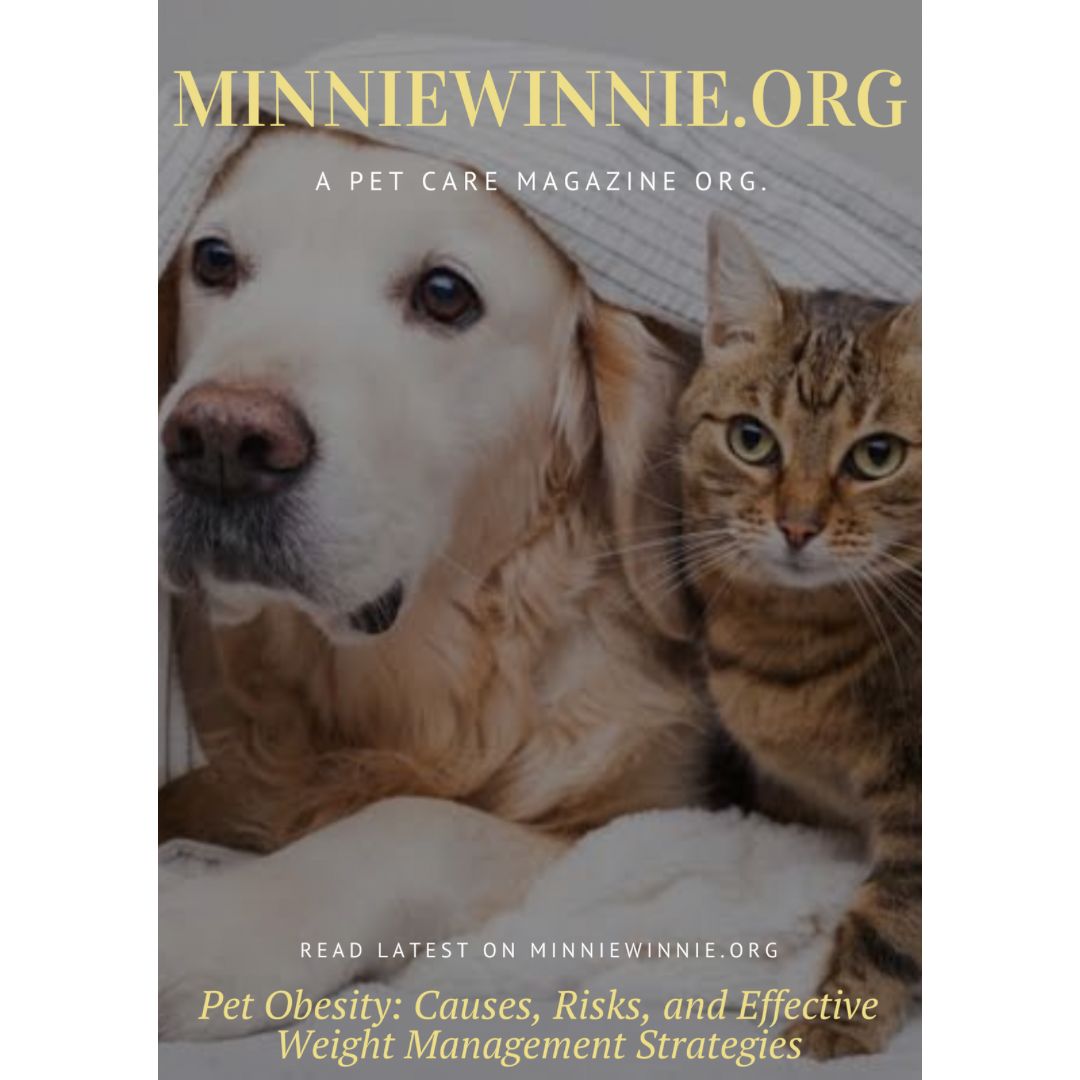Pet Obesity: Causes, Risks, and Effective Weight Management Strategies
Pet obesity is a growing concern among veterinarians and pet owners alike. Just like humans, pets are susceptible to the health complications that come with carrying excess weight. Understanding the causes, risks, and effective weight management strategies is essential for ensuring the well-being of our furry companions.
Causes of Pet Obesity
1. Overfeeding: One of the most common causes of pet obesity is overfeeding. Many pet owners are unaware of the appropriate portion sizes for their pets, leading to excessive calorie intake. Treats and table scraps can also contribute significantly to a pet’s daily calorie count.
2. Lack of Exercise: Sedentary lifestyles are not just a human problem. Pets that do not receive adequate exercise are more likely to gain weight. Indoor pets, in particular, may suffer from a lack of physical activity.
3. Poor Diet: A diet high in carbohydrates and low in protein can contribute to weight gain. Commercial pet foods that contain fillers and artificial additives may not provide the necessary nutrients while adding unnecessary calories.
4. Age and Genetics: As pets age, their metabolism slows down, making it easier for them to gain weight. Certain breeds are also genetically predisposed to obesity, such as Labrador Retrievers, Beagles, and Dachshunds.
5. Medical Conditions: Conditions such as hypothyroidism, Cushing’s disease, and insulinoma can lead to weight gain in pets. It’s important to rule out medical issues with a veterinarian if your pet is gaining weight unexpectedly.
Risks of Pet Obesity
1. Reduced Lifespan: Obesity can significantly shorten a pet’s lifespan. Overweight pets are more prone to chronic diseases and have a lower quality of life.
2. Diabetes: Just like in humans, obesity increases the risk of diabetes in pets. Managing a diabetic pet requires strict dietary control and medication, making prevention crucial.
3. Joint Problems: Excess weight puts additional strain on a pet’s joints, leading to conditions such as arthritis and hip dysplasia. This can cause pain and limit mobility.
4. Heart Disease: Obese pets are at a higher risk of developing heart disease and hypertension. The added weight makes the heart work harder, leading to cardiovascular issues.
5. Respiratory Issues: Excess fat can restrict a pet’s airway, making it difficult for them to breathe. This is especially problematic for brachycephalic breeds like Bulldogs and Pugs.
Effective Weight Management Strategies
1. Consult a Veterinarian: Before starting any weight loss program, consult your veterinarian. They can rule out underlying medical conditions and provide a tailored weight loss plan for your pet.
2. Proper Diet: Transition to a high-quality, balanced diet that meets your pet’s nutritional needs without excess calories. Look for foods with high protein content and low carbohydrates. Portion control is key; measure your pet’s food accurately and avoid free-feeding.
3. Regular Exercise: Incorporate regular exercise into your pet’s routine. Dogs benefit from daily walks, playtime, and activities like fetch or agility training. Cats can be encouraged to move with toys, laser pointers, and climbing structures.
4. Monitor Progress: Keep track of your pet’s weight and body condition. Regular weigh-ins and body condition scoring can help you stay on track and make necessary adjustments to their diet and exercise regimen.
5. Limit Treats: Treats should be given sparingly and should account for less than 10% of your pet’s daily caloric intake. Opt for healthy, low-calorie treats or use small pieces of their regular food as rewards.
6. Behavioral Changes: Encourage slow eating by using puzzle feeders or food-dispensing toys. This can help prevent overeating and make mealtime more engaging for your pet.
7. Family Involvement: Ensure all family members understand the importance of maintaining a healthy weight for your pet. Consistency is crucial; everyone should adhere to the feeding and exercise guidelines.
Conclusion: A Healthier Future for Your Pet
Pet obesity is a preventable and manageable condition that requires commitment and care from pet owners. By understanding the causes and risks associated with obesity and implementing effective weight management strategies, you can help your pet achieve and maintain a healthy weight. A healthy pet is a happy pet, and taking steps to prevent obesity will ensure your furry friend enjoys a longer, more fulfilling life.










